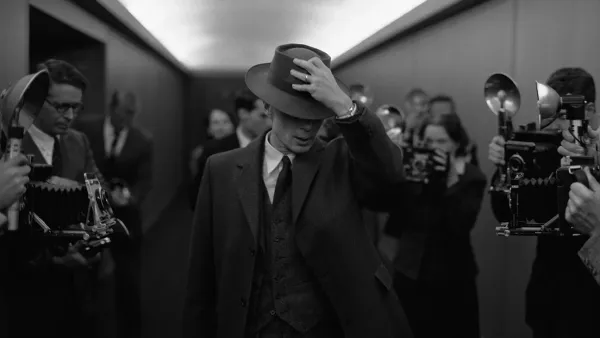All Of Us, Strangers.


If I admit I was delirious, walking into that Picturehouse that day, then I must concede also that it was a very, very weird day for me - the first of a week of them, all of my own doing.
That morning, I had read something that I knew was going to affect me in ways I wouldn’t be able to regulate, and instead of not reading it, I got it over with. At one point I couldn’t feel my legs, and I forgot to be worried on public transport. I could not eat a single thing.
This is the woman that walked into the cinema, realising she’d forgotten her glasses, to watch “All of Us Strangers”. Delirious, the world a little blurry, unable to feel her legs. The final sequence led to an odd experience, as the focus of my eyes played tricks on me — and I thought I might be dying. Numb, triggered, and a little naively knocked off course, feeling a lot of guilt and shame churning above her head, in that head space.
The universe was so cruel to send me that film that day. A film about the manifestations of loneliness, the past, and fantasy. So Much Fantasy. If I’m not careful, my reading of this film is, in itself, an endorsement of a life of complete fantasy, which, honestly, that day, I needed.
It is the kind of story that holds us where we are, not where we think we should be.
I think there’s a kind of shame in burrowing into fantasy. That’s what children, nay, maladaptive children, do - adults, MEN, grown-ups, face reality head-on, with a stiff upper lip and red blood. Of all the days where I needed a film to endorse complete unwavering belief, the fantastic and the unexplainable, as a phenomenon of healing, that was the day.
The intersection of ‘fabrication’ in the pursuit of understanding, a falsehood to reveal a truth — or maybe, a falsehood for healing; I found it hard to be normal about it.
There is an intentional ambiguity in the way the plot of the film unfolds because it is not a story about unfolding a mystery — it’s a story about wholly unrelated answers. We, or rather, I, preferred not to ask “what” was happening, but why — and if that why found itself satisfied. Anyone who has tried to unfurl the film into reality, to take it out of its abstracted presentation, perhaps has never been in the liminal place the film is trying to recreate.
Adam looks to find the parents he was robbed of growing up with — for better and for worse. He finds it in the depths of loneliness that I unfortunately recognise — one that feels alienated from the world, from community. All that makes it through is televised culture — rerun music television and the like. He looks for a partner that affirms, without capitulation, both his situation and the situation of his romantic life and sexuality at large. He dreams him up.
There’s a kind of shame in burrowing into fantasy — but then there’s a shame attributed to serial dating. There’s a shame attached to casual sex. There’s shame, in our culture, around any longing for connection. We’re simply not allowed to want. Haigh tackles this bodily, both through the abstraction of the fantasy, and the seriousness with which he takes the subject.
Because, in essence, this is a film about “delusion”, if put in its harshest, starkest terms. But, oh, the sweetest kind, no? The kind I can only interpret as moral without incident, and spiritually healthy. Though the therapist or the friend may baulk and worry, “All of Us Strangers” finds the vital, healthy core of it.
Stories are how we make sense of time, therefore stories we tell ourselves are how we make sense of our time. Without it we spin out into the universe, lonely in the vacuum. If we can’t allow ourselves the stories, we can’t allow ourselves our own time, I believe.
Anyway great film loved it and I was totally not going through anything because that would mean I ever wanted something, and woe betide the person who wants.




